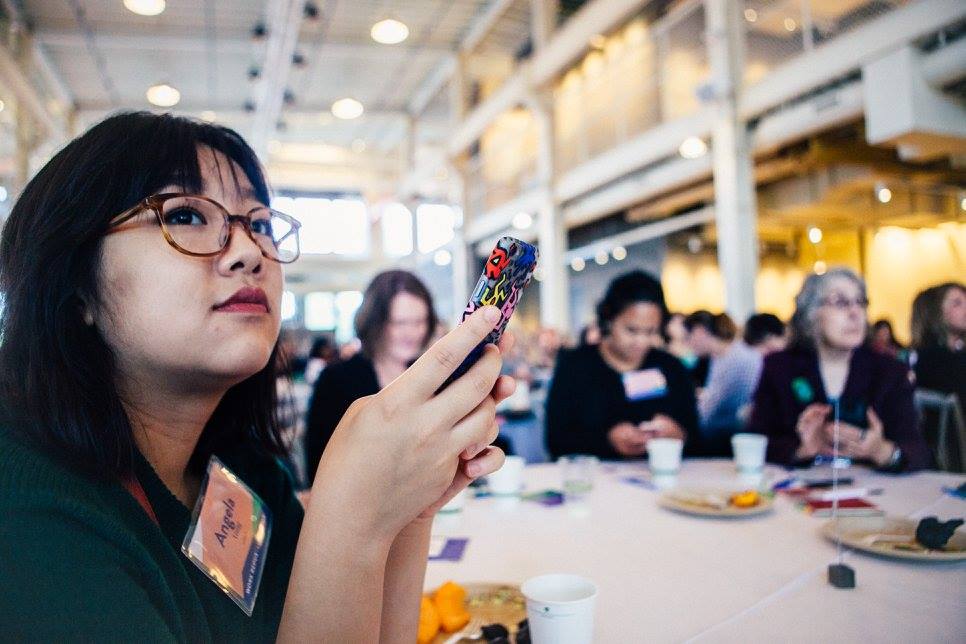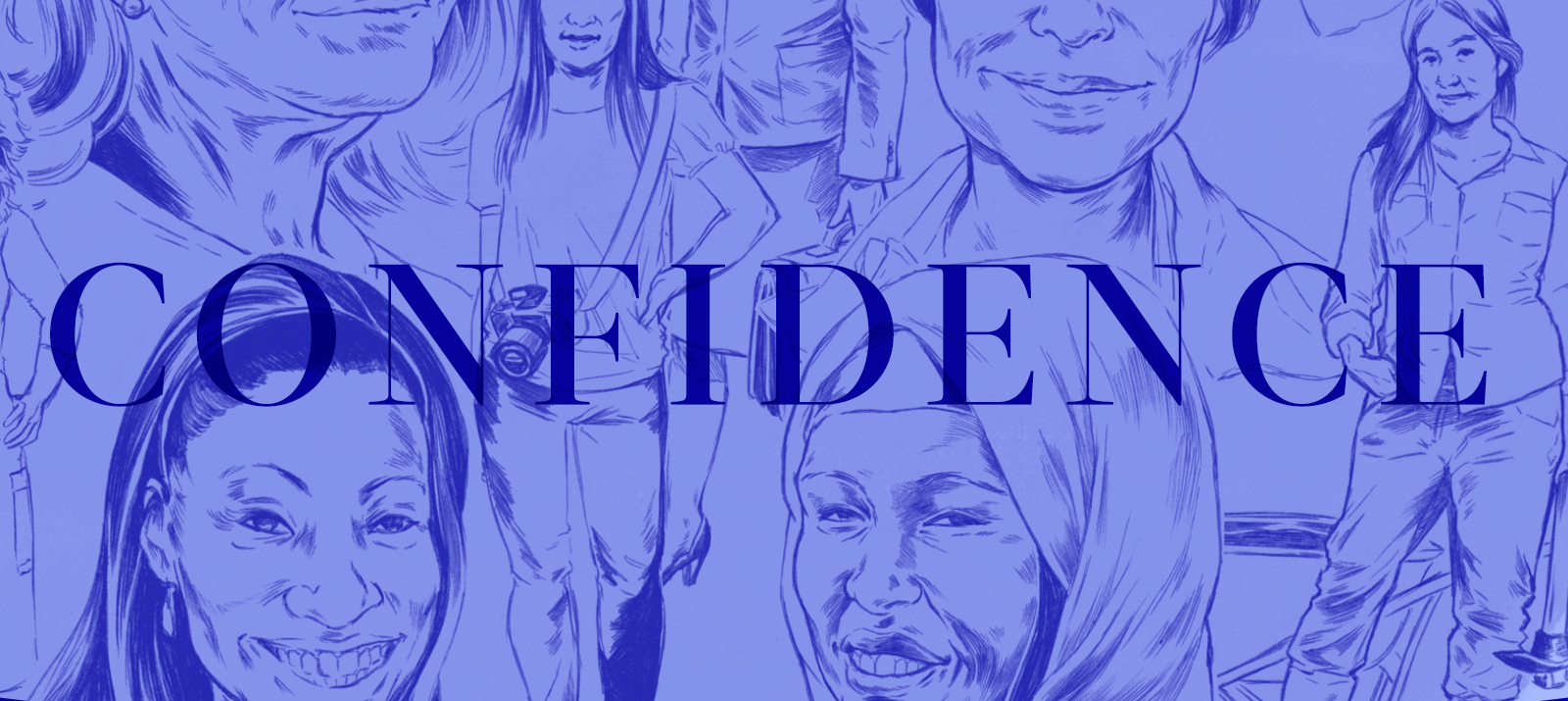
Photos by Nancy Musinguzi
from the Work Redux | Confidence Event
On September 23, over 250 leaders gathered at Machine Shop for Work Redux to challenge the cultural assumptions behind the current, dominant work culture. At Work Redux | Confidence, attendees explored the intersections of confidence that add up to our individualized presentation as leaders. A panel of impressive female leaders, who each embody their own version of confidence, opened up and shared their personal experiences with confidence and how it has helped and hurt their own leadership journeys.

One of the panelists, Nancy Lyons, is the president and CEO of Clockwork, an interactive design and technology agency. Along with chief executive officer, Meghan Wilker, Clockwork has been leading the charge to increase diversity in tech and create more inclusive work environments for all. We asked Krisiti McKinney and Penny Holman, both account directors at Clockwork, to talk about where their confidence comes from, how they built their confidence back up after it was knocked down, and what advice they have for those of us who struggle to find and hold onto our own confidence.
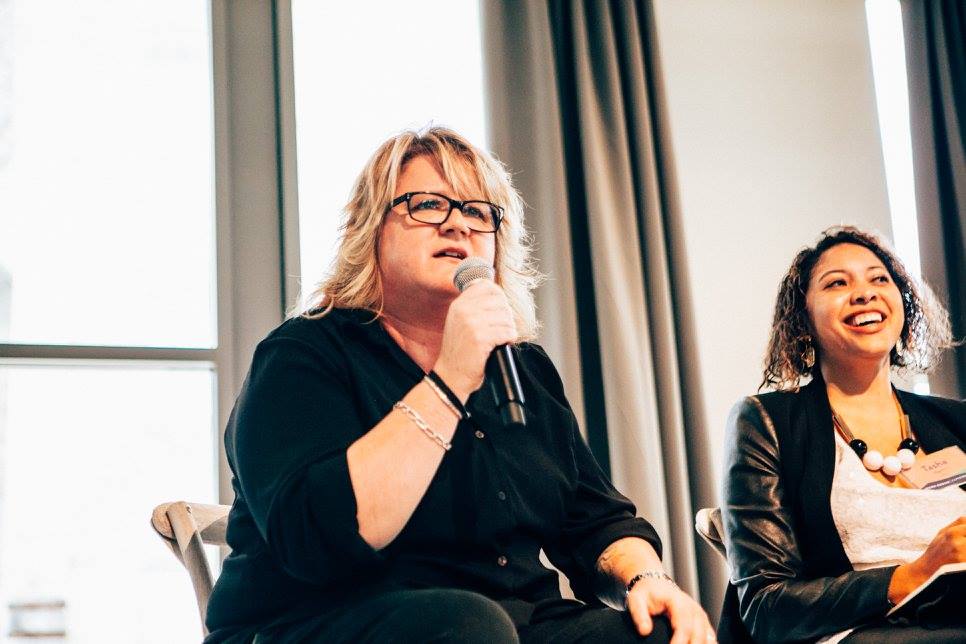
Has anyone ever commented on your presentation as a leader or offered “advice” on how you should show up? What did they say to you? How did you or didn’t you respond?
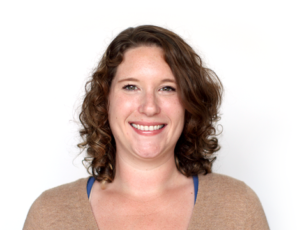 Kristi McKinney: I was once told by a man that I should be less “harsh” and “more understanding” when people miss deadlines or fail to do their jobs. I told him that I was responding in accordance with the action and that to me, when one fails to meet an obligation, that’s a serious matter and should be addressed as such.
Kristi McKinney: I was once told by a man that I should be less “harsh” and “more understanding” when people miss deadlines or fail to do their jobs. I told him that I was responding in accordance with the action and that to me, when one fails to meet an obligation, that’s a serious matter and should be addressed as such.
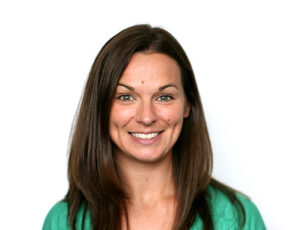 Jenny Holman: Yes. I’ve had the good fortune of working with a group of confident leaders at Clockwork who have helped me identify areas where I can improve. The advice has never been personal or with regard to my physical appearance, rather methods to consider when delivering difficult messages or challenging client situations. One bit of advice that I use frequently is approaching an issue by asking for help. Is a team member not meeting expectations? Sit down with them and ask for their help to understand what blockers may be in their way. Is a client not providing leadership with their team that impacts our ability to make progress on the project? Ask for their help in identifying how we can better collaborate.
Jenny Holman: Yes. I’ve had the good fortune of working with a group of confident leaders at Clockwork who have helped me identify areas where I can improve. The advice has never been personal or with regard to my physical appearance, rather methods to consider when delivering difficult messages or challenging client situations. One bit of advice that I use frequently is approaching an issue by asking for help. Is a team member not meeting expectations? Sit down with them and ask for their help to understand what blockers may be in their way. Is a client not providing leadership with their team that impacts our ability to make progress on the project? Ask for their help in identifying how we can better collaborate.
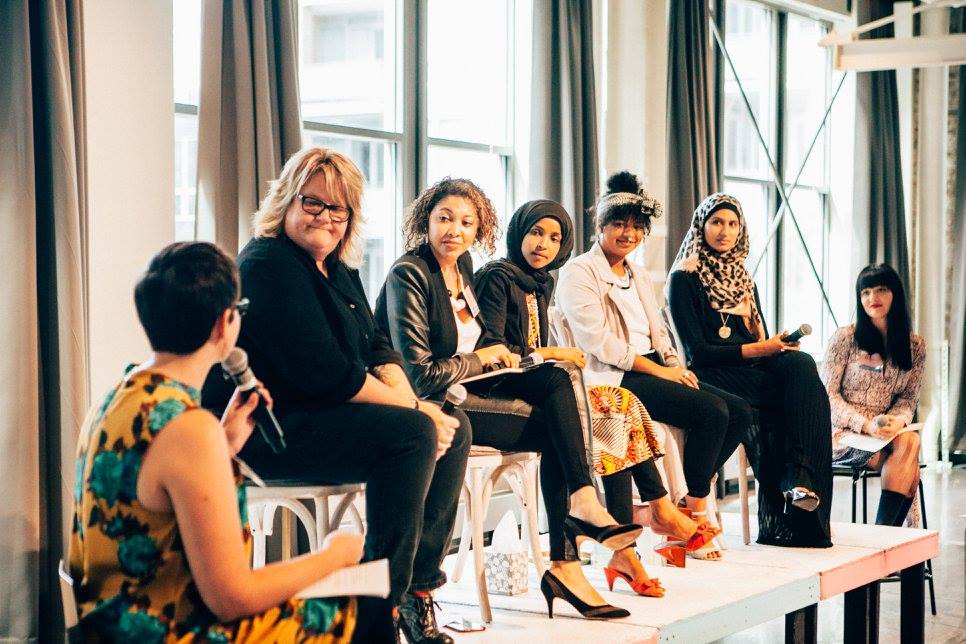
Do you consider yourself a confident person? What does that look like for you? How do you present that confidence in your leadership style?
Kristi: Inside my head, I am not confident, but I do my best to project the exact opposite externally. I frequently remind myself that I am capable and I know when to ask for help, so I don’t need to second guess my decision-making. To others, I do my best to speak in a confident tone and be honest when I don’t know something. It’s never “I don’t know.” It’s always, “I’m unsure of the answer to that, but I can get back to you once I gather more information.” I am diligent about following up on my obligations and check-in frequently with people to make sure I’m delivering what they need from me.
I do my best to be confident in the things I know and admit my ability to learn what I do not.
Jenny: I am confident. As a person leading a team of technologists, confidence often looks like optimism—that we have the tools to do great work, that we can solve the problems in front of us, and that we can live up to our values as an organization. A lot of this confidence comes from a place of trust, humility, and empathy for our team members. We all live big, varied, challenging lives. Work is just one part of that puzzle. It’s my job to ensure that we’re providing a supportive, engaging, and challenging environment. It’s through the hard work our team exhibits that I’m able to approach clients and opportunities with confidence that they have chosen the right digital agency to help them reach their goals.
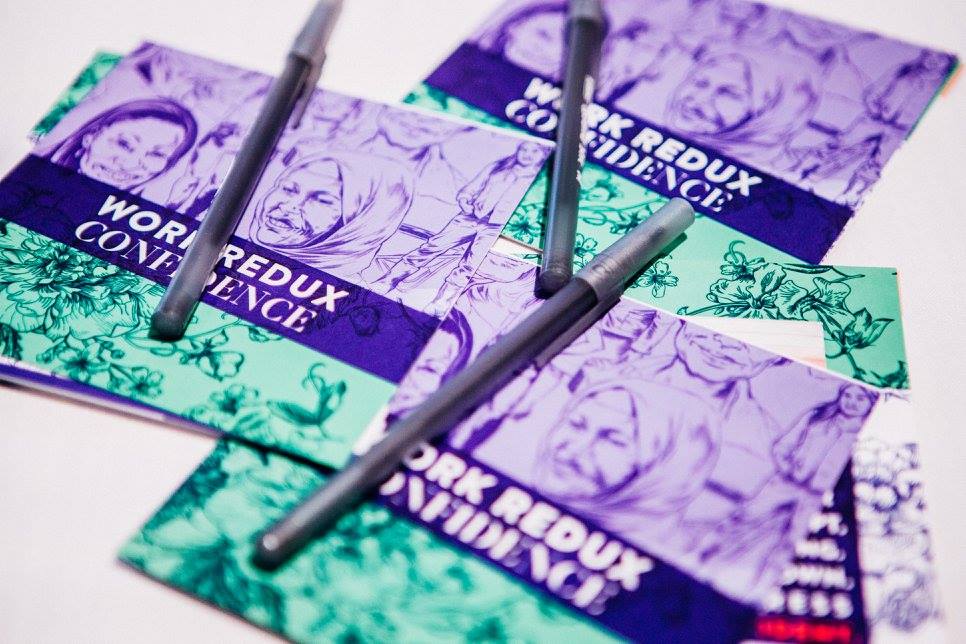
How has your confidence helped or hurt your leadership path?
Kristi: I think it’s helped me, not hurt me. Even when I knew that the mostly male leadership at a previous position were uncomfortable with a confident woman, they also respected it. I did my best to earn and keep that respect so that I could continue to advance.
Jenny: Confidence has absolutely helped me as a leader— confidence allows me to lead a team and provides equal confidence in the team that we will do what we set out to do (or have set-backs, adjust, and learn some equally important lessons). My team sees me as a supporter who helps guide us in the right direction.
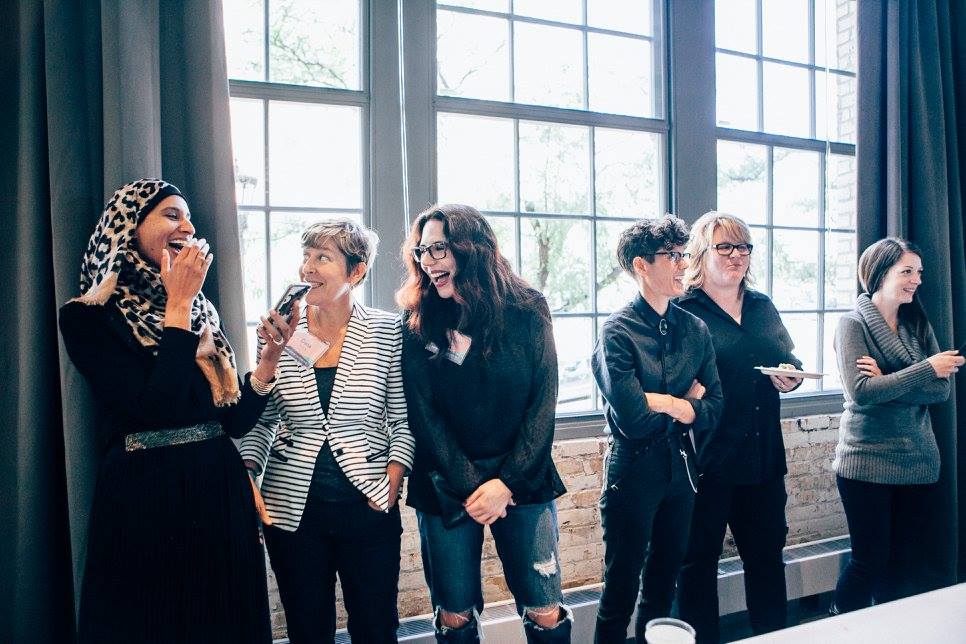
Where did you gain your confidence? Did it come from your childhood upbringing, athletics, arts, college, a unique lived experience?
Kristi: I grew up without a lot of hand-holding or support and needed to figure out things on my own. This led to a lot of mistakes and failures and learning how to adapt and be my best.
I’m independent to a fault, but I think I’ve finally figured out a balance; knowing when to ask for help is the most important part.
Jenny: I’ve always had a certain amount of confidence that I attribute to being unafraid to try something new. I was blessed to be supported by my family to try new things, push boundaries and not be afraid to fail.
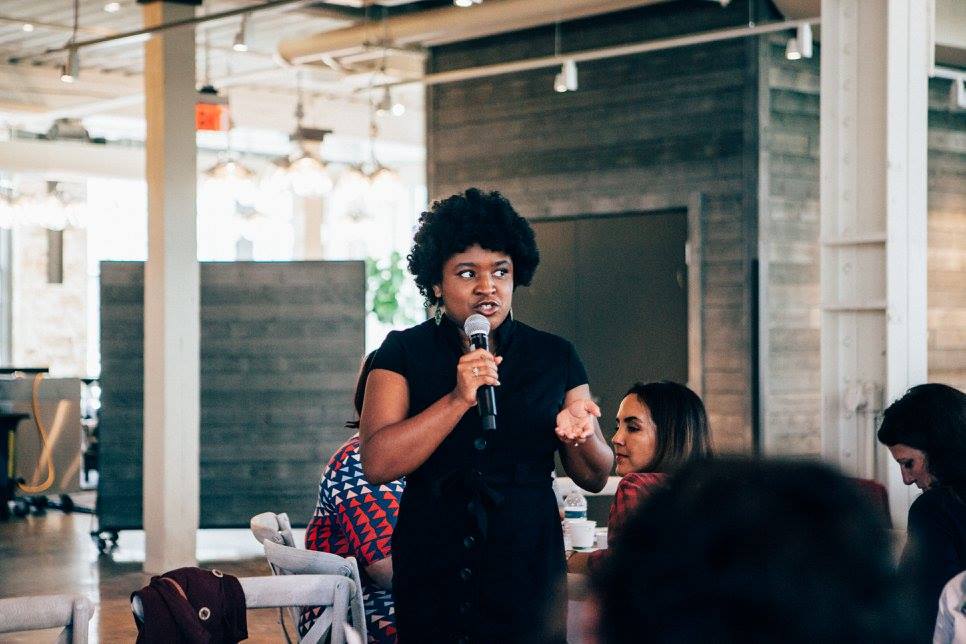
Tell us about an interaction or experience that knocked your confidence. What did you do to move past it and build your confidence back up?
Kristi: I once had a client look at me and sternly say, “This is not what I expected. I am disappointed in this work and don’t think you paid any attention to what I’ve said.” That was incredibly difficult. It was a project I’d poured at least 100 hours of interviews, research, and work into. I had to take a step back and find the gap between what I produced and their expectations. Once I did, I was able to identify what needed to be done to close that gap. It was ultimately a misunderstanding at the project level, even though it felt personal. I leaned on my teammates to help me get my confidence back. I knew that they thought my work was great and that though it felt personal, it was not.
I needed to remind myself that business is business and taking it personally is never helpful.
Jenny: Everyone experiences moments that make you feel like an imposter. A good personal example was when I switched to clipless pedals on my bike. These pedals allow your shoes to lock into a mechanism on the pedal—meaning you and the bike are one. I was super excited for the benefits and thought the learning process would be simple. I mean, really, you’re still pedaling a bike. How difficult could it be? I made the switch just before embarking on a week long organized bike ride across the state of Iowa (RAGBRAI). I started the first day of riding and quickly learned that my brain didn’t automatically communicate with my feet with the speed that I needed to not topple over.
Throughout the day, I had to consciously think about stopping. Be intentional about unclipping my feet. It was a process that got easier each day, but didn’t come without a serious knock to my confidence. That process was a great reminder of how to approach other challenges: always take a moment to pause and think and be intentional in your plan. And persevere—every struggle is an opportunity to learn a new approach.
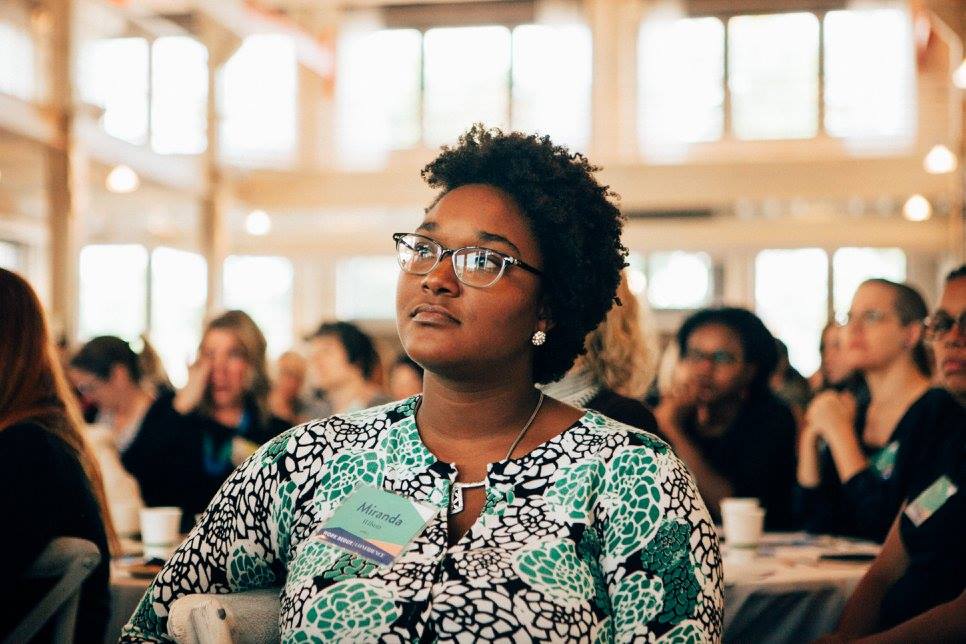
What advice would you give to women who struggle with confidence—both in their professional and personal lives?
Kristi: Think about the person you admire the most, the person that exudes confidence and grace. Despite appearances, that person is doubtful. They doubt themselves, their abilities and their decision-making. They probably don’t show it, but it’s there and they are not so different from you. We must be confident but not full of hubris; we must recognize that we are not perfect and we will fail. We must try to see where we need to do better and use that introspection to demonstrate that confidence and arrogance are not synonymous. It is not easy, but if you do your best all the time and proceed feeling confident in that, it will show on the outside.
Jenny: Know that you are good enough. Even when you doubt yourself— ay the words “I can do this.” (Wow, that sounds overly simple.) Surround yourself with smart, challenging, motivating people who push and support you.
“I can do this.”
